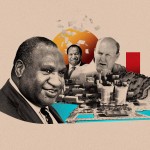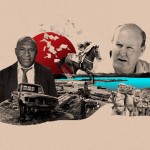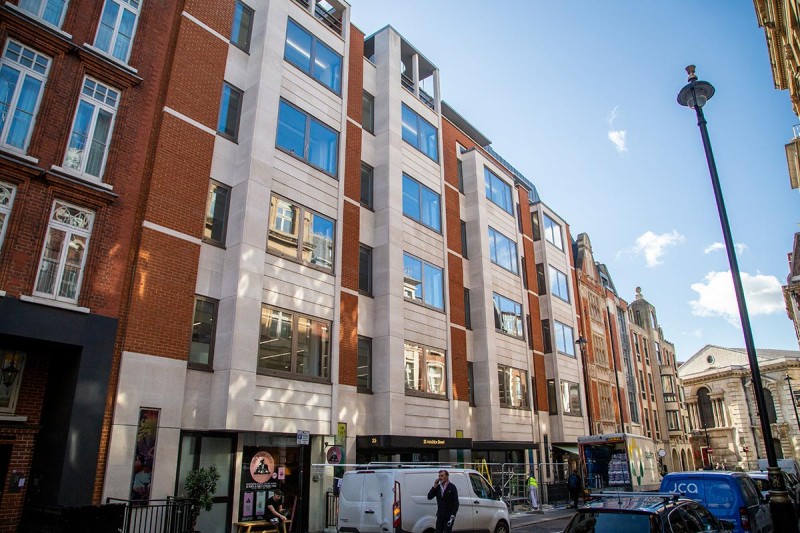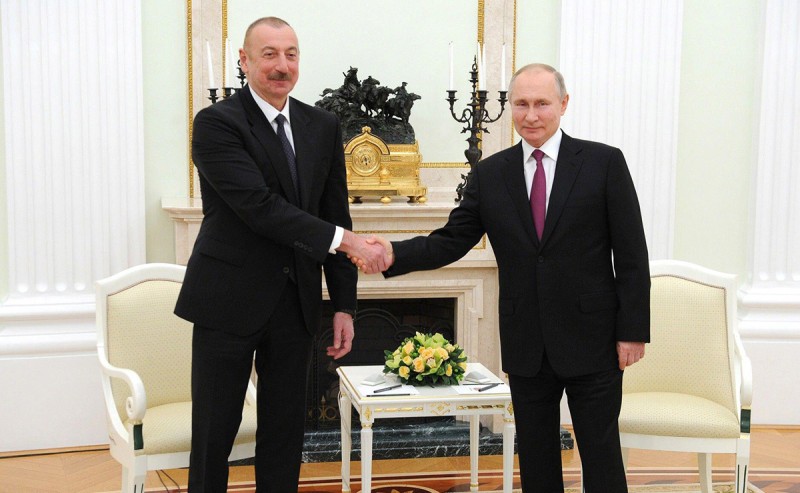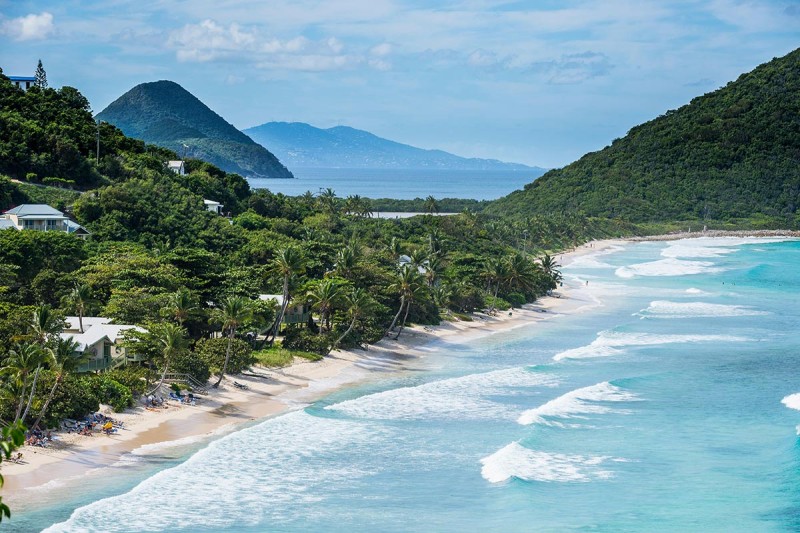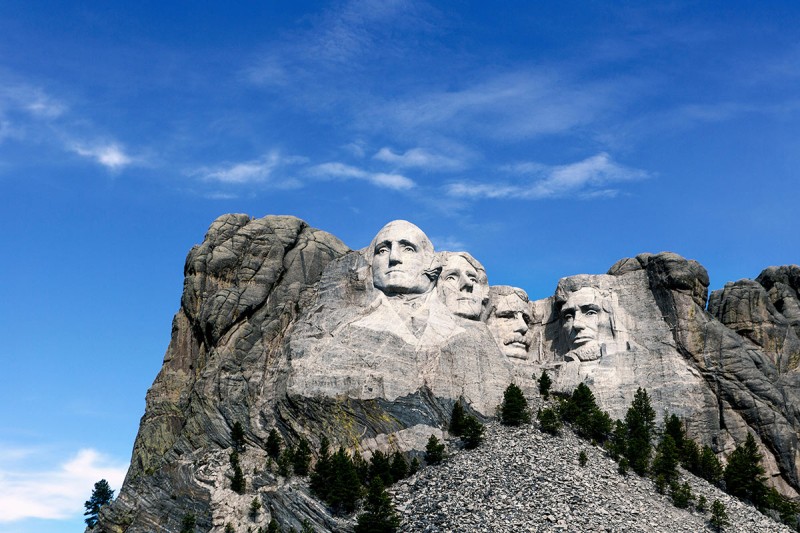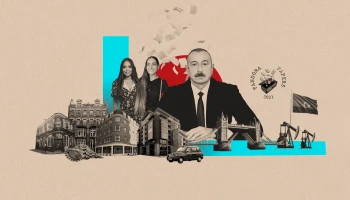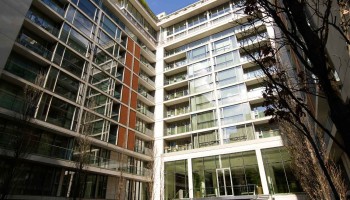On April 29, 2009, the tenants of a strip of shops and offices on Maddox Street in London’s exclusive Mayfair neighborhood woke up with a new landlord: an 11-year-old boy.
This news should have been surprising. Not only was Heydar Aliyev not yet in his teens, but he also happened to be the son of Azerbaijan’s authoritarian president, Ilham Aliyev. And yet, he had managed to become the owner of 33.5 million pounds (US$ 48.9 million) of prime commercial real estate in the heart of London.
But the tenants on Maddox Street had no chance to be surprised — because they had no way of knowing who really bought their building. And, until today, neither did the rest of the world.
On paper, the owner of the property was a company, Mallnick Holdings S.A., set up in the British Virgin Islands. The fact that it had been acquired by an associate of President Aliyev and then handed over to his young son was hidden, thanks to the Caribbean territory’s strict corporate secrecy.
The deal is just one example of the miraculous secrecy enabled by offshore finance: a thriving, global industry of formation agents, bankers, lawyers, and accountants that helps hundreds of billions of dollars worth of the proceeds of corruption, crime, tax avoidance and shady deals move undetected around the world every year.
Now, a massive leak of data pulls back the veil of secrecy on the offshore finance industry like never before. Known as the Pandora Papers, it is the broadest-yet leak of confidential financial documents, comprising nearly 12 million files from 14 companies that provide offshore services.
Coordinated by the International Consortium of Investigative Journalists (ICIJ), over 600 journalists from around the world, including more than 75 from OCCRP’s network, spent two years sifting through nearly three terabytes of documents.
The result is an unprecedented look inside the world’s shadow economy. Coming more than five years after the Panama Papers, which exposed law firm Mossack Fonseca, the latest leak ends forever the idea that abuses of the offshore system are the work of a few bad apples. Instead, the files expose a vast and often interconnected system that is feeding crises and discontent across the world.
It’s “the dark side of globalization,” Oliver Bullough, author of Moneyland: Why Thieves And Crooks Now Rule The World And How To Take It Back, told OCCRP.
For decades, major banks, law firms and accountants have worked hand in hand with the world’s biggest corporations to build a system that allows for seamless global commerce and the minimization of tax, Bullough said. As time has gone by, kleptocrats and criminals have increasingly used this system for their own ends.
“It just so happens that the same things that big corporations want — minimal scrutiny, minimal taxes, best protection for contracts and so on — are also the same things the kleptocrats want,” he said.
But while corporate tax minimization might hurt the budgets of developed countries, the worst damage is in the Global South. For a fee, offshore providers are able to create sophisticated global structures that can be used by politicians, officials and businessmen in some of the world’s poorest countries to siphon staggering amounts of money abroad. As the Pandora Papers show, service providers often prove all too willing to take on such clients.
“It's like unleashing a tiger on an island full of flightless birds,” Bullough said. “It’s obviously going to be a disaster.”
The files illustrate the truly global nature of the offshore business. It’s a hidden world in which a reported secret mistress of Russian President Vladimir Putin can get a luxury apartment in Monaco via an offshore shell company, and where the King of Jordan is able to secretly snap up real estate in London and Malibu. Again and again, the files show the ease with which money can be quietly moved around the world — including by politicians and others in positions of public trust.
From missing taxes to stolen artworks and smuggled antiquities, the Pandora Papers lays bare exactly how the offshore industry hides the fortunes of the world’s rich and infamous alike. In many cases, it has also facilitated the transfer of vast wealth from poor and developing countries to tax havens and wealthy enclaves in cities like London, where fashionable central areas have been gobbled up by politicians, officials, and their relatives. Trillions of dollars, mostly from the earnings of large corporations are believed to be stashed in offshore tax havens. Each year, tax avoidance alone is estimated to cost the world’s poorest countries $200 billion a year — far in excess of what they receive in development assistance.
The entire system is so hard to unpack in part because jurisdictions that offer corporate secrecy, such as the United Arab Emirates, are able to attract so much money, said Lakshmi Kumar, Policy Director at Global Financial Integrity, a Washington, DC-based nonprofit.
“These offshore jurisdictions act as financial centres for their region, businesses migrate there. The UAE allows for commercial disputes to be settled through English common law, they provide anonymous companies, protections for businesses,” Kumar said.
“It’s safe and convenient for business. But that is also safe and convenient for criminal actors.”
“Bringing Mischief to Mortals Silently”
The service providers whose data make up the leak are spread across the world and have decades of experience discreetly servicing high profile clients.
The largest tranche of files, just over 3.75 million in total, comes from Trident Trust Group, a firm that has operated since the late 1970s in offshore havens including the British Virgin Islands, the Seychelles, and Panama, as well as the United States and the United Kingdom.
The Pandora Papers shows Trident’s customers have included powerful people such as Bahrain’s former prime minister, Prince Khalifa bin Salman al-Khalifa, as well as Khadem al-Qubaisi, a former aide to Abu Dhabi’s royal family. Prominent businessmen, such as Alibaba’s Jack Ma, have also been clients.
The family and business associates of Azerbaijan’s leader Aliyev used Trident’s services to build an offshore-controlled empire in the United Kingdom worth over half a billion dollars in unexplained wealth. Documents show that Trident set up 84 companies in the British Virgin Islands for Aliyev’s circle — including some that received money from the Russian and Troika Laundromats, two multi-billion-dollar money laundering schemes first revealed by OCCRP. The companies were also used to secretly invest in businesses back home in Azerbaijan.
In some cases, the documents show Trident maintained relationships with clients in spite of accusations of wrongdoing. Abu Dhabi adviser al-Qubaisi remained a client of Trident years after he was accused by the U.S. Justice Department of playing a role in a multi-billion dollar fraud involving funds from a Malaysian sovereign wealth fund, 1MDB. Trident also continued to work with the family trust of Dan Gertler, an Israeli mining billionaire, years after he was accused by a U.N. expert panel of exchanging “conflict diamonds” from Africa for cash and weapons. Gertler has since been sanctioned by the U.S. government.
In a response to reporters, Trident refused to answer questions on specific cases. Instead, it said the company “is regulated in the jurisdiction in which it operates and is fully committed to compliance with all applicable regulations. Trident routinely cooperates with any competent authority which requests information.”
Other providers in the data include law firms, such as Panama’s Alemán, Cordero, Galindo & Lee, known as Alcogal, and Cyprus’ Demetrios A. Demetriades, known as Dadlaw. They also include a wide geographic spread, from Asiaciti Trust, a service provider that focuses mainly on the Asia-Pacific region, to Alpha Consulting, a firm based in the Indian Ocean nation of the Seychelles.
The latest revelations show that offshore providers make up a truly global and interdependent industry, said Rachel Etter-Phoya, a senior researcher at the Tax Justice Network.
“The celebrities, the political families are all involved. They're all using the same service providers,” Etter-Phoya said. “The service providers work together and go after similar clients [and] the clients recommended them to each other.”
The data also contains fascinating details on another trend: the growing role of the United States as an offshore haven. Due to the central role the U.S. plays in the global banking system, the country is in a uniquely powerful position to bring secretive offshore finance to heel. But while the federal government has made recent efforts to rein in the industry abroad, many states — such as Delaware, Alaska and Nevada — have held out or are moving in the opposite direction. In recent years, lawmakers in over a dozen U.S. states have voted to expand their financial secrecy industries.
The Pandora Papers contains details on over 200 trusts set up in the U.S. in recent years. In dozens of cases, clients have abandoned more traditional havens, such as the British Virgin Islands and the Bahamas, in favor of the U.S.
The most popular destination has been South Dakota, where the past decade has seen the value of assets held in trusts reach more than $360 billion. State laws in South Dakota allow for the establishment of secret trusts which don’t have to pay a cent of tax to the state for any earnings. Unlike most states, which restrict the life of trusts to a century or less, South Dakota trusts are also “perpetual,” meaning they have no end date. This means they can continue making tax free gains and passing them on to future generations — theoretically forever.
“As a citizen, I’m so sad that my state was the state that opened Pandora’s box,” Susan Wismer, a former South Dakota lawmaker, told ICIJ.
“You Know Who”
In the coming days, OCCRP will publish a broad range of stories based on the Pandora Papers. Frequently, the documents show that the biggest beneficiaries of the offshore systems are people in power, as well as their friends and family.
Known in the industry as “politically exposed persons,” or PEPs, such people are supposed to be subject to increased scrutiny to make sure their money hasn’t come from questionable deals or outright corruption. Offshore service providers routinely say they subject such people to enhanced “know your customer” checks.
In total, 35 current and former national leaders appear in the leak, alongside 400 officials from nearly 100 countries. Among those names are former British Prime Minister Tony Blair, Chilean President Sebastián Piñera, Kenyan President Uhuru Kenyatta, Montenegrin President Milo Đukanović, and Gabonese President Ali Bongo Ondimba.
Among the revelations are details of how Czech Prime Minister Andrej Babiš, who was elected on an anti-corruption platform, used offshore companies to disguise an investment of 15 million euros in luxury property in the south of France, including a chateau. The files also show how another European leader elected on an anti-graft platform, Volodymyr Zelensky, appears to have used complex offshore arrangements to allow his family to continue benefiting from overseas business without declaring it.
The leaked files show that offshore firms sometimes appear to have taken a lenient approach to their due diligence on politically sensitive clients.
Nikola Petrović was one such customer. The Serbian citizen was the head of the country’s state-owned electricity transmission company. He was also the kum — roughly equivalent to a best man or blood brother — of the country’s autocratic president, Aleksandar Vučić. He became an owner of a British Virgin Islands company, set up in 2016, via Swiss consulting firm Fidinam and Alcogal, the Panamanian law firm.
But when setting up the company, Petrović never informed Alcogal that he might be considered a politically exposed person despite being so close to the president. Furthermore, his Swiss lawyer specifically told Alcogal that Petrović was not a PEP. However, Alcogal’s due diligence after the formation of the company uncovered his political position and asked for a bank reference letter. Documents show that the Swiss law firm pushed back on requests by Alcogal, offering instead to write the reference letter themselves. Alcogal accepted the offer. Petrović kept the company secret from Serbian officials, never declaring it as required by law with the anti-corruption agency.
Petrović did not respond to questions.
The documents show the lengths providers take to preserve their clients’ anonymity. The leak shows how Panamanian firm Alcogal and a Swiss adviser for Jordan’s King Abdullah II worked to conceal the monarch’s identity from the public. Even in emails between themselves, they referred to Abdullah using pseudonyms: the “final beneficiary” living in Jordan, or “you know who.” After the British Virgin Islands passed a 2017 law requiring companies to confidentially disclose their real owners, correspondence showed that Alcogal and the advisers discussed using a workaround in which they would have disclosed a holding company, rather than the king, as true owner to local authorities. It is unclear what they ultimately decided to do.
The king’s attorneys told ICIJ that professionals manage the king’s companies to ensure compliance with relevant legal and financial obligations. In a response to ICIJ, Alcogal said that the law does not require it to report politically-exposed people, known as PEPs, on the basis of their political ties alone. The firm said that it conducts enhanced background checks on all politically-connected individuals.
Do you know more about this story?
Some of OCCRP’s most important journalism has come from anonymous or confidential tips.
If you know more about the issues we've covered here, or have documents or evidence of wrongdoing you'd like to get into the open, OCCRP can help.
“One Set of Rules for Them”
The vast, secret flow of offshore cash isn’t just hurting the budget bottom line. Across the world, it’s also feeding discontent and undermining governments’ legitimacy.
In Lebanon, a severe banking crisis and a series of financial scandals involving the country’s business and political elite has led to sometimes violent protests. Amid electricity cuts, fuel lines, and shortages of currency, Lebanese are fleeing the country in droves.
One of the banks that has been the focus of public anger is Al Mawarid Bank, which responded to the crisis by preventing clients from withdrawing their U.S. dollar savings. When news emerged in 2020 that bank chairman Marwan Kheireddine, bought a Manhattan apartment from the Hollywood star Jennifer Lawrence, angry crowds burned a building in Beirut they believed belonged to him.
But thanks to the secrecy enabled by offshores, wealthy individuals like Kheireddine are able to hide much more.
For example, the Pandora Papers show that in 2019 amid warnings by economists of the impending crisis, Kheireddine became the owner of a British Virgin Islands company that owned a $2 million yacht. The previous owner of the yacht, Yahya Mawloud, told reporters that the vessel had been given to Kheireddine as collateral for a loan.
Kheireddine did not respond to a request for comment from ICIJ.
Lebanese remain furious with their country’s elites, who they blame for the economic chaos. Wafaa Abou Hamdan, a 57-year-old widow, told OCCRP partner Daraj that inflation had caused her life savings to fall from the equivalent of $60,000 to just $5,000. “All my life's efforts went in vain, I have been working continuously for the past three decades,” she said. “We are still struggling on a daily basis to maintain our living” while “the politicians and the bankers . . . who seized our savings have all transferred and invested their money abroad.
Even countries that appear to have benefited from the inflow of illicit cash, like the United Kingdom, are seeing increases in inequality and local corruption as a result, said Nicholas Shaxson, the author of Treasure Islands: Tax Havens and the Men who Stole the World.
As revelations of offshore abuses by elites continue to pour out, there is a growing realization around the world that there is “one set of rules for them, and another set of rules for everybody else,” Shaxson said. “I think a lot of people grasp that viscerally.”
The good news is that greater awareness is leading more people to embrace concerted, cooperative action to work globally to reduce secrecy and close loopholes, he said.
“I'm quite optimistic for the long term. But you know, under no illusions that it's going to be easy. Or, you know, even going to be successful.”
This story includes contributions from ICIJ, KRIK, Daraj, and other Pandora Papers partners.
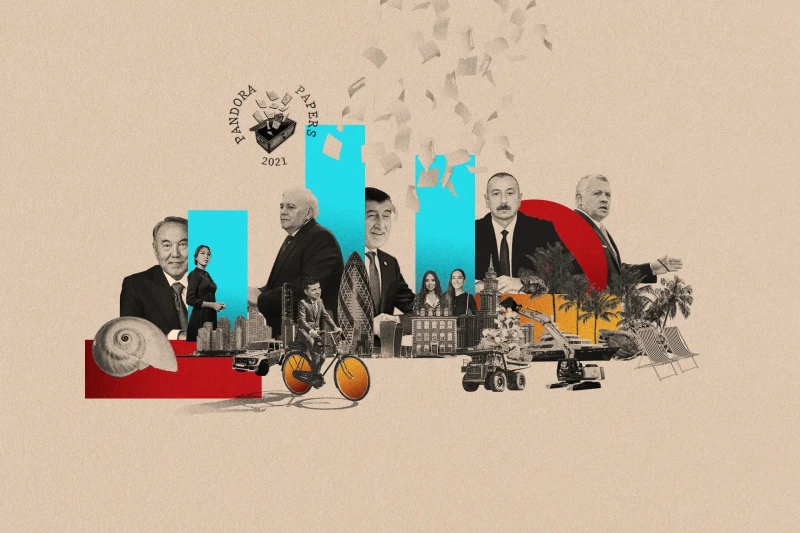
.jpg/daf5f209c20846c8dcd2295cae2a00ae/kenyan-aladdin-sep24-(1).jpg)
